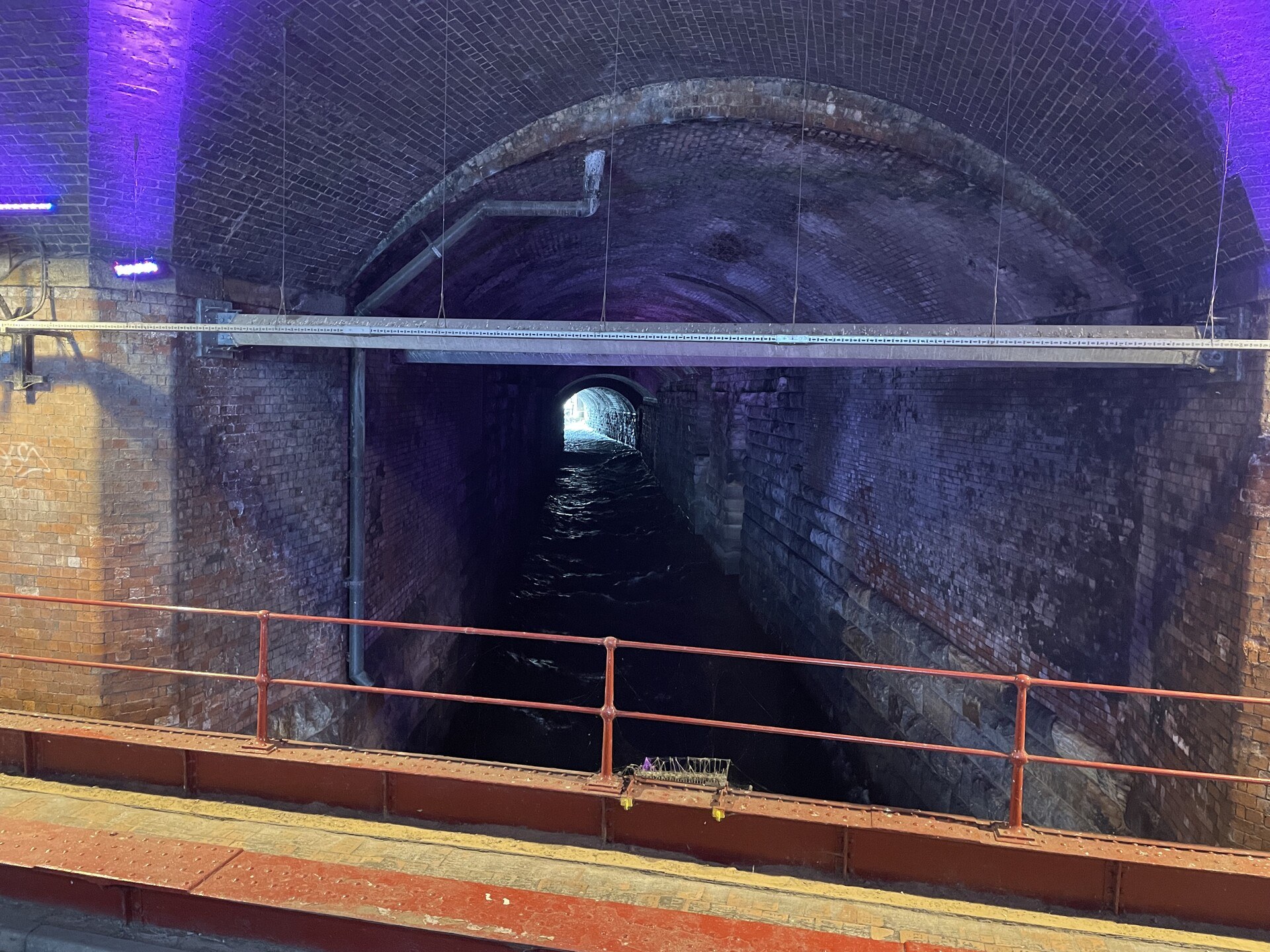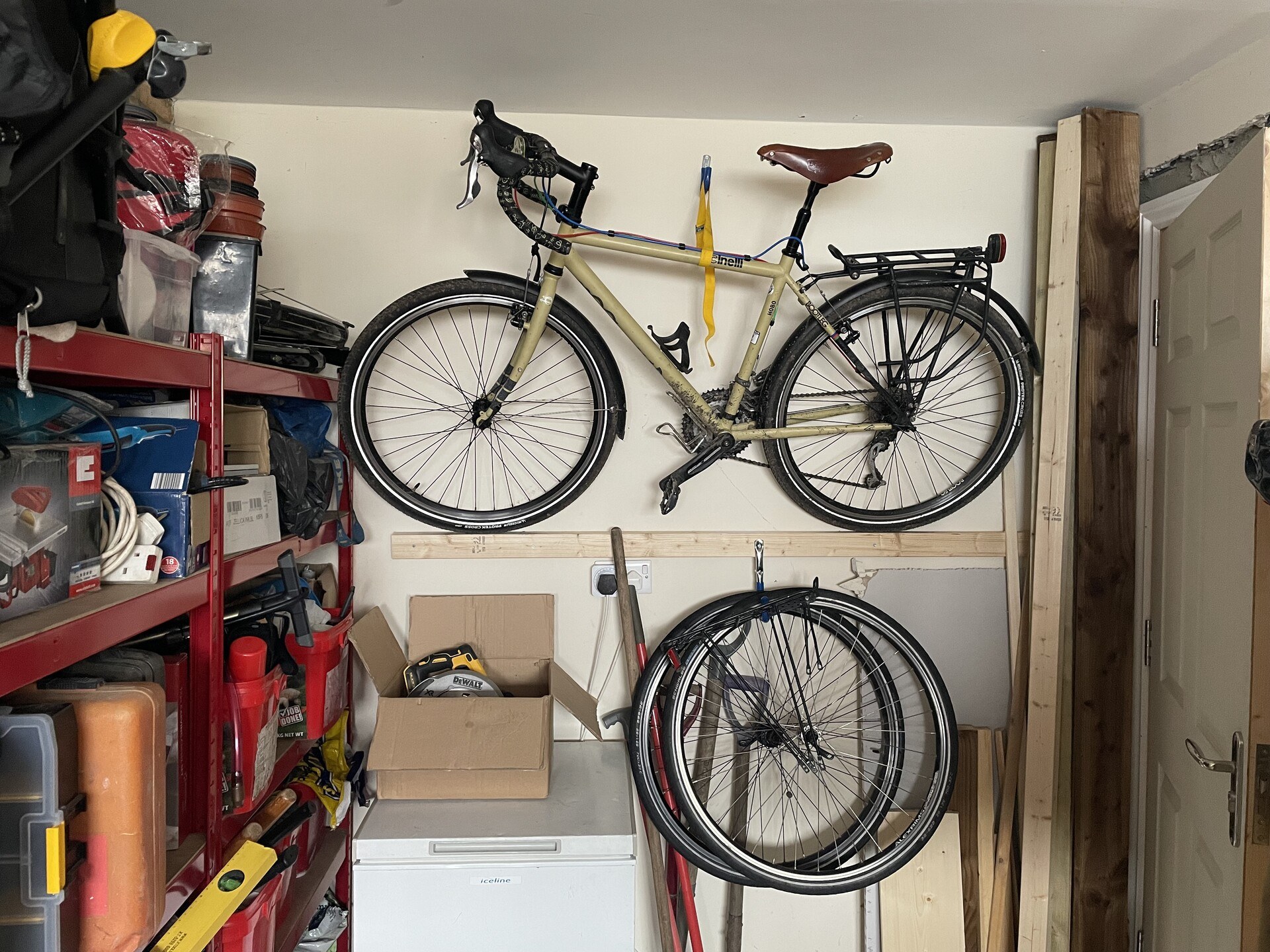Showing posts for Theatre
-
Weeknotes 24 July
I kicked off the week by taking Ghyll out for a couple of runs and going to a Striders speed practice. My dogs were barking to wake up the neighbours the morning after. Probably not a great way to get back into the swing of things after a triathlon. Since then, I've not felt quite myself: slightly sore, slightly achey, nose running a bit more than it usually does. I can't tell if I'm ill or just tired or if this is just what life feels like now.
The malaise usually passes by like 11 am, depending on how many hot drinks I have in the morning.
In Leeds
Suitably rested (or not), I headed down to Leeds on Thursday morning for a work-related event sponsored by Salesforce. I've never been to one of these before. The novelty of receiving a little tote bag full of branded goodies excited me, and the room service carts of sweets that they rolled into the room at precisely 9:45 got the better of me for a solid 90 minutes before I could no longer look at a fizzy cola bottle, let alone consider another handful down the gullet. The workshops were interesting and the free rein that Salesforce gave us with their API-building tools encouraged hackery and exploration.

Here's a crummy picture of the Aire running in torrents under the train station. I thought it was neat. Afterwards we all headed down to the Head of Steam, where a tab had been graciously opened for us. I proceeded to down pint after pint of the highest-ABV Trappist ales the Head had in their tall refrigerated cabinets. I played shuffleboard with a colleague and, however improbably, met another McGill grad. It was a fantastic day and a fantastic evening, and I wasn't even much worse for wear the following day.
At home
By the time the weekend arrived I'd finally built up the courage to tackle the neglected chores that had been accumulating throughout the week. In the midst thereof, I knuckled down on a project to mount Sam's bike on the wall and clear up a little space in the garage, cribbing extravagantly from our bike-repairman neighbour from a couple weeks ago.

The result of my handiwork: look at all the space it frees up In Durham
Sunday, Sam and I ran (well, I ran and Sam rode her bike) down to the iron railway bridge in Hart—a solid 20km round trip—to try and tire Ghyll out ahead of a date night we'd planned in Durham. We've left him for a few hours on his own before, so we knew he could take it.1
Ghyll tucked in and snoozing away, we stole into Durham for dinner and a show at the Durham Fringe Festival. The show was a play called Chance, about a kid growing up in crushing poverty and the ways that he tries to cope with it. Dinner was at Zen, an Asian fusion place with Thai-inspired curries right up my alley.

Sam took this picture of me, in which I look maybe 15% too stern for this picture to really be optimally funny Stray observations
On the train to Leeds on Thursday, I finished Cormac McCarthy's The Passenger, and it was: alright. B+ material, I think. A proper book report is forthcoming.
I also watched this video by Van Neistat (learning, only just now, that the brothers Neistat have a bit of a homebrew online empire) and was swept away by his sanguine vision of organisation at work. I've resolved to go out and buy myself a bunch of hooks and shelves.
I'm generally pretty suspicious of characters like Neistat (any of em) who sell a lifestyle to a particular genre of white man, and I'm certainly not going to pull a Van and start writing my blog drafts on a typewriter (I left that period of my life back at uni!), but there's a certain comfort in having someone else definite your value system for you—especially when that imported value system looks so cool on YouTube!
- Heck, the last time we left him on his own, he wasn't even at home! ↩︎
-
Chance at Durham Fringe
Play about a kid struggling with poverty and his escape to the moors above his deprived town. The play is nominally set in County Durham, and the actors had local accents, but there's nothing particular to this part of the country in the plot. Sam and I wondered, afterwards, whether the play tours the country with different local casts: a lad escaping to the Peak District in deprived Yorkshire, a lad escaping to Dartmoor in deprived Devon.
You get the sense that Yolan Noszkay, the author, has had some poor experience with social welfare efforts, though: they paint mental health and social services as more interested in checking boxes than in actually helping people. While I think that shoestring budgets have necessarily reduced the mental and emotional bandwidth of social workers, those people wouldn't be doing what they do if they didn't care.
Still, the picture that the play paints of poverty in this country is total and crushing. People are being let down day in and day out.
“When you’re outa luck in this man’s country, you certainly are outa luck,” said Mac and for some reason they both laughed.
U.S.A. by John dos PassosSeen at Durham Fringe Festival.
-
Julius Caesar
Wasn't impressed, which was surprising! We saw the RSC's Taming of the Shrew a couple years ago, and Romeo and Juliet sometime in the interval since, and thought they were both dynamic, modern interpretations of Shakespeare. Good job, RSC, keep doing what you'e doing.
This one felt stale. The stage was mostly bare, but for a giant rotating cube that the actors could climb on top or inside of. Costumes were generic, the whole cast clad in modern-day dress in shades of grey and beige with no indication of rank or status, which didn't help to distinguish senators from proles or, indeed, Caesar from anyone else. The ghosts of dead characters came back in lively colours, but I couldn't discern the meaning of this. Significant scenes were questionably punctuated by industrial music and the whole cast coming together for a bit of rhythmic dancing. I'm not sure what the meaning of this was either, but it robbed the performance of inertia.
A couple of other complaints: rather than red blood, conspirators marked Caesar with a thick black ink when they pounced—but the black ink didn't stand out against the characters' black-and-grey outfits, and the inkstains stuck around for the rest of the play. I get the sense that the director was trying to indicate, Macbeth-like, that the stain of murder was upon them, but it just made the cast look shabby—not bloodstained.
Finally, I'm not sure if this is the fault of the directing, the acting, or the play itself, but everything that comes after Caesar's death felt messy, muddy, unclear. I get that the play is just trying to tie up loose ends after the intermission, but the play seemed to be doing its utmost to shed my attention.